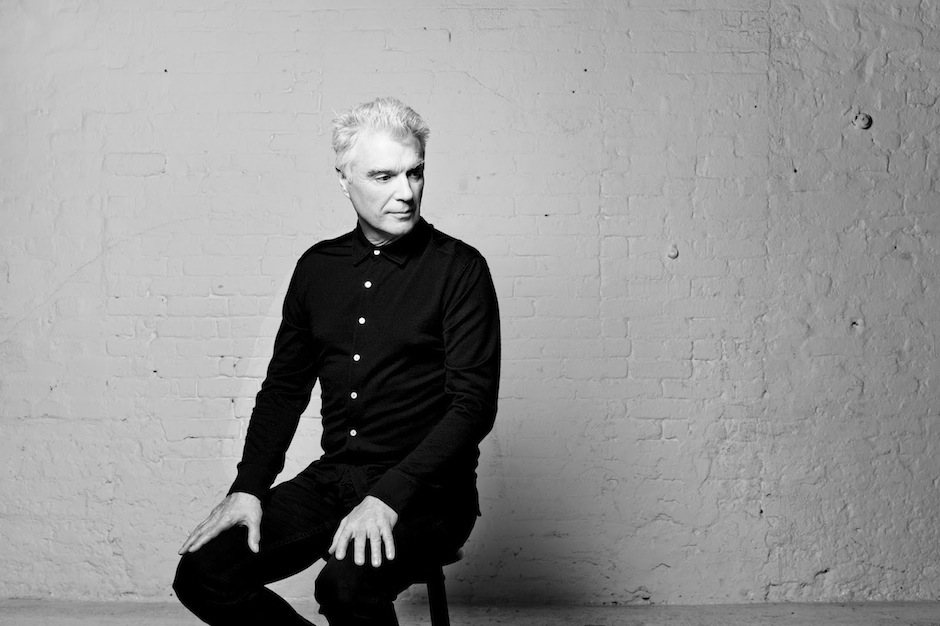The Talking Heads met in Providence, Rhode Island, but they formed in New York City, and they’ve always been tightly linked to their adopted home. The new-wave avatars performed at revered New York venue CBGB, as documented in the new movie about the place. Their first single gave its name to a recent book about the mid-’70s NYC music scene, Will Hermes’ 2011 Love Goes to Buildings on Fire. Though the band split in 1991, frontman David Byrne has remained an emblematic figure for downtown music, his white hair easy to spot at shows, his Luaka Bop label and ongoing collaborations fostering a view of art that crosses language, genres, and generations. And now Byrne is warning that he might skip town.
In a column posted by the London Guardian and Creative Time Reports, Byrne argued that despite gains in safety and public services, extreme inequality in the city threatens to destroy the creative culture that incubated his band. “I’m a huge supporter of the bike lanes and the bikeshare program, the new public plazas, the waterfront parks and the functional public transportation system,” Byrne wrote. “But the cultural part of the city — the mind — has been usurped by the top one percent.” Noting that many of the super-rich drive up New York real estate costs without actually living in the city, he continued: “If young, emerging talent of all types can’t find a foothold in this city, then it will be a city closer to Hong Kong or Abu Dhabi than to the rich fertile place it has historically been. Those places might have museums, but they don’t have culture. Ugh. If New York goes there — more than it already has — I’m leaving.”
Although the column led to some jokes about Byrne’s observation that he waves, unrequited, at doubledecker tourist buses, the Talking Heads head’s stature as such an involved New York art-scene eminence lends weight to his criticisms of the city’s widening economic divide. And it’s not as if he has actually decided he no longer wants to be a part of it, New York, New York: He might raise the possibility of heading upstate to “join the expat hipsters,” but he doesn’t sound enamored of the idea. Rather, Byrne concluded by calling on the city’s powers-that-be to nudge its future closer toward his vision, one that combines “the invigorating” energy” found only in New York and “the civic, intelligent humanism” of Scandinavian cities such as Copenhagen and Stockholm.
“Can New York change its trajectory a little bit, become more inclusive and financially egalitarian?” Byrne wrote. “It’s still the most stimulating and exciting place in the world to live and work, but it’s in danger of walking away from its greatest strengths. The physical improvements are happening — though much of the crumbling infrastructure still needs fixing. If the social and economic situation can be addressed, we’re halfway there. It really could be a model of how to make a large, economically sustainable and creatively energetic city. I want to live in that city.”
The reaction to Byrne’s column has been immediate, but the points it makes have obviously been brewing for some time. Byrne’s daughter, Malu Byrne, wrote for The New York Times last year about how the high cost of living in New York was driving artists out of the city. Her father blogged extensively while on tour with St. Vincent this past year, and he went into an eye-popping level of detail about places like Des Moines, Iowa, which he suggested might be “an ideal place to grow up or raise your kids.” He added that when he mentioned this to others in his group, he “got very mixed reactions.”
Byrne’s dates with St. Vincent in support of their 2012 collaborative album Love This Giant have come to an end. His latest book, last year’s How Music Works, is now out in an expanded paperback edition. Byrne also said in a recent email blast that Here Lies Love, his musical with Fatboy Slim, “will have continued life as a live show and there will be a cast album with about seven news songs on Nonesuch — more news on that soon.” Particularly as the mayoral election looms, the debate Byrne has sparked with his column will also likely remain ongoing.





